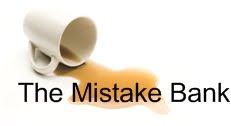She has been forced by the illness to develop convoluted workarounds for some of the most basic research tasks, yet her workarounds, in all their strange complexity, deliver many of her greatest advantages. When I asked, for example, how she reads old newspapers on microfilm without traveling to a library, I was stunned to discover that she doesn’t. “I can’t look at microfiche,” she said. “I couldn’t do that even in my good vertigo years.”
Instead, Hillenbrand buys vintage newspapers on eBay and reads them in her living room, as if browsing the morning paper. The first time she tried this, she bought a copy of The New York Times from the week of Aug. 16, 1936. That was the day Seabiscuit’s team — his owner, Charles Howard; his trainer, Tom Smith; and his jockey, Red Pollard — first collaborated at the Detroit Fair Grounds. Hillenbrand told me that when the newspaper arrived, she found herself engrossed in the trivia of the period — the classified ads, the gossip page, the size and tone of headlines. Because she was not hunched over a microfilm viewer in the shimmering fluorescent basement of a research library, she was free to let her eye linger on obscure details.
“There was so much to find,” she said of her reading. “The number-one book was ‘Gone With the Wind,’ the Hindenburg flew over Manhattan with a swastika on it and Roosevelt made a speech saying America would never become involved in foreign wars.” Soon she bought another newspaper, and then another. “I wanted to start to feel like I was living in the ’30s,” she said. That elemental sense of daily life seeps into the book in ways too subtle and myriad to count.
Sunday, December 21, 2014
How Laura Hillenbrand's disability shapes her distinctive narrative voice
One theme you might have noticed on this site - mistakes can lead to new discoveries, and limitations often confer advantages as much as disadvantages. An example of the latter from the New York Times Magazine profile of writer Laura Hillenbrand ("Seabiscuit)" and "Unbroken") by Wyl S. Hilton. Hillenbrand has long suffered from chronic fatigue syndrome and rarely leaves her home.
Wednesday, December 17, 2014
Four Seasons Hotels review a daily "glitch report"
This is from the autobiography of Four Seasons founder Isadore Sharp, "Four Seasons: The Story of a Business Philosophy." Four Seasons has an unparalleled reputation for customer service.
Sharp added this in an interview with Christopher Elliott: "What’s important with a glitch is not the error – it’s the recovery. Guests remember how they were treated and the outcomes, and we always strive to ensure that the outcomes are positive."
Next up [in our daily review] is a review of the previous day's mistakes in something we call the Glitch Report. Every department in the hotel is represented at the morning meeting, and each has a printout detailing what has gone wrong and what steps may already have been taken to correct course. The Glitch Report ensures that every hotel department knows what happened and which guest it affected.
We might have missed a guest with something as simple as turndown service, and everybody listens to the department head responsible as he or she articulates what went wrong. That person will go to the root cause of the problem and tell everyone what will be done to fix it in that guest's eyes. Whatever the issue, making it right starts with a sincere apology. It can also mean trying to do something else for them later on in their visit. It can mean an amenity such as flowers or fresh fruit skewers or a bottle of wine. It could mean an appropriate adjustment or consideration on their bill. For each guest, we strive to find the right approach in the apology.
Sharp added this in an interview with Christopher Elliott: "What’s important with a glitch is not the error – it’s the recovery. Guests remember how they were treated and the outcomes, and we always strive to ensure that the outcomes are positive."
Subscribe to:
Posts (Atom)
